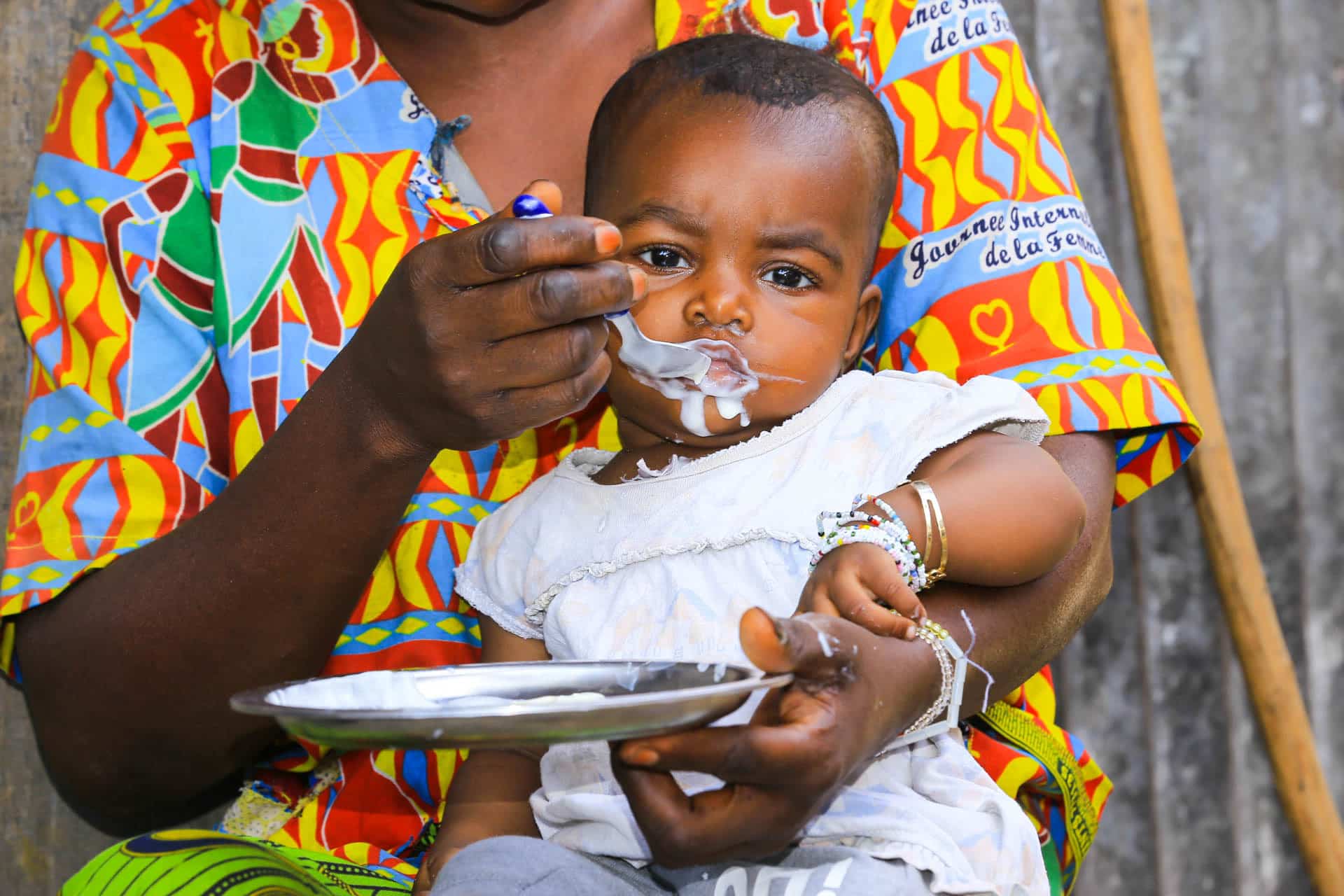The Johns Hopkins Center for Communication Programs leads social and behavior change activities for Tudienzele, $105.7 million, five-year resilience and food security project in the Democratic Republic of Congo, designed to combat deep-rooted poverty and malnutrition in the country.
Tudienzele, which means “let’s work together for ourselves” or “let’s solve our own problems” in Tshiluba, one of DRC’s national languages, is led by the Adventist Development and Relief Agency (ADRA) and funded by USAID’s Bureau for Humanitarian Assistance. Along with CCP, the consortium leading the project includes Action Contre La Faim, Adam Smith International, and Femmes Main Dans La Main Pour Le Développement Integral. The project hopes to ensure food security on a systemic basis, allowing DRC to overcome events such as drought, conflict, or weather disasters.
DRC is a nation rich in natural resources, but it grapples with serious challenges, ranking 179 out of 191 in the Human Development Index. The HDI, created by the United Nations, is a measure of average achievement in key dimensions of human development: Living a long and healthy life, being knowledgeable, and having a reasonable standard of living.
Tudienzele will focus on increasing family incomes and improving economic opportunities for families so that they have the resources to navigate future challenges successfully. In addition to these activities, the team will assist families in accessing, choosing, and preparing high-quality, nutritious, and affordable foods.
The project is designed to be an integrated and layered approach, ensuring interventions are targeted, sustainable, and harmonized with other activities and government plans.
Key to the success of Tudienzele is its commitment to gender mainstreaming and inclusivity. Recognizing that decisions related to nutrition and food choices, WASH, and income and economic opportunities are inherently linked to gender roles, CCP will proactively engage women and girls, as well as marginalized groups in all facets of our work, striving to remove barriers and promote equitable participation in community leadership roles.
In addition to gender, sustainability is a fundamental aspect of Tudienzele’s design. CCP will work to strengthen and build on existing community structures and systems rather than create new ones. This approach recognizes the inherent value of DRC communities and the networks that they already have. The project will also support meaningful linkages with the private sector to invest in local markets and solve local challenges.


